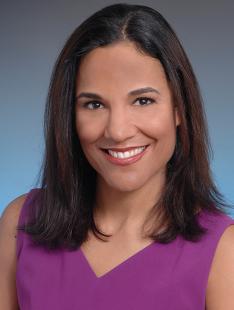Perhaps Croft is something of a superwoman like her fictional counterpart, balancing a career as managing director and global head of commodity strategy at RBC Capital Markets with life as the mother of three young children. Croft, a member of the Council on Foreign Relations, is also a media star. She frequently appears on CNBC to discuss the energy industry.
PAW caught up with Croft just before she stepped on a plane to Abu Dhabi. Long flights are routine for Croft, who travels two to three weeks each month. “I’m very lucky my husband [Gauti Eggertsson of Brown University] is a professor [of economics] who keeps an office at the New York Fed,” she said. Croft and Eggertsson have three boys — ages 5, 8, and 11 — and Croft uses her frequent-flyer miles to take her family on business trips. (Her kids have come to love Vienna because of her frequent attendance at OPEC meetings.)
Growing up in Washington, D.C, “accounts for my interest in world affairs,” Croft said. After studying history and economics at the University of Edinburgh, she returned to the U.S., working as a researcher for the Congressional Office of Technology Assessment. However, the agency was eliminated in 1995, leaving Croft jobless. “I was scrambling,” she recalled. “I had taken the GRE but not the LSAT or the GMAT. So I sent my application to Princeton on a whim and I was admitted to the Ph.D. program in economic history.”
Her thesis looked at how and when countries undertake reforms, focusing on Ghana’s interactions with the International Monetary Fund. Croft has fond memories of serving as a lecturer in [undergraduate] classes on history and African politics.
As she completed her Ph.D., a Princeton mentor suggested the CIA. “After 9/11 it was a privilege to go there,” she said. “I never worked in a place that had such an abiding sense of mission. Young people were really needed because we could work all night.”
She worked as an analyst covering West Africa. “Nigeria, which had transitioned to democracy after decades of military rule, is a very important oil producer, and after 9/11 the Bush Administration was very focused on energy security,” she said.
Croft was sent to the 2002 peace talks in the Democratic Republic of Congo (DRC). “I have never felt more threatened than in the DRC when my hotel was overrun with child soldiers,” she said. “We wanted to get an assessment of who these people were — is there a viable leader we can get behind? The negotiating party had their bodyguard of kids with AK-47s. It was challenging and painful, and made you question your faith in human nature.” Croft wasn’t issued a weapon for self-protection: “They taught us to write, not to shoot.”
Croft credits her time in the CIA with being able to ask tough questions of others — and herself. “You really had to be brutally honest with yourself and see where your weaknesses lay,” she said. “You can be wrong, but you better be wrong for the right reasons.”
That mindset of checking assumptions and challenging conventional wisdom served Croft well after she left the CIA to work in the business intelligence group at Lehman Brothers, doing “deep dives on countries like Saudi Arabia.” Lehman went bankrupt in the crash of 2008, but Croft stayed on when Barclay’s bought the company. She later transitioned to RBC, where clients include asset managers, hedge funds, oil and gas companies, and sovereign states she often visits.
What’s it like for an independent business woman to travel in the Middle East?
Croft said leaders in traditional societies “value my opinion. If they disagree they do so in an engaging way. High level officials in Saudi Arabia or the UAE are much more respectful than a 27-year old hedge fund analyst who’s always trying to find your weakness.”
As an energy analyst and a mother, what does Croft say to those who see investing in oil companies as akin to investing in cigarettes?
Croft points out that oil companies are investing in renewable energy. But when pension funds won’t invest in energy companies, “that means we won’t get long-lead investments. We could be setting ourselves up for a super-spike because nobody is investing in deep water projects.”
Croft’s 11-year old son is a budding environmentalist, so she’s taken him to Abu Dhabi’s Masdar City, a planned “zero-carbon-footprint” development.
But she adds, “We can be idealistic, but if you want to get on an airplane, you still need fossil fuels.”

